ASU’s College of Health Solutions announces significant investment in research and teaching with 20 new faculty members
The College of Health Solutions at Arizona State University welcomes 20 new faculty members whose wide range of expertise will enhance its commitment to research and student learning, further advancing its mission to improve health outcomes for individuals and communities.
“Our bold mission requires that we hire the very best faculty to prepare our students to make a difference in the ever-changing health fields,” said Deborah Helitzer, dean of the College of Health Solutions.
“This impressive group of professors, clinical professionals and lecturers will drive innovation throughout our academic programs and research initiatives to improve population health for Arizona and beyond.”
The College of Health Solutions has a unique structure with several diverse yet related health disciplines integrated into a single unit to maximize collaboration and tackle complex health challenges from multiple perspectives.
These new faculty will elevate the college’s expertise in biomedical informatics and biomedical diagnostics, biostatistics, health care delivery, health sciences, health neuroscience, movement sciences, nutrition, population health, and speech and hearing science.
New leadership role
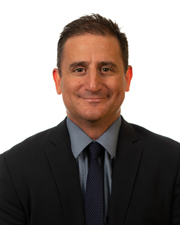
Michael Yudell joined the college in July as the first-ever College of Health Solutions vice dean, a new position created due to growth in student enrollment, research, faculty, programs and other initiatives. Yudell, a professor of health history and ethics, is working on the college’s initiatives in equity, diversity and inclusion, exploring new programs in global health and further strengthening faculty and staff success. He joins the College of Health Solutions from Drexel University in Philadelphia, where he was a professor and chair of the Department of Community Health and Prevention at the Dornsife School of Public Health. He holds a PhD and Master of Public Health from the Mailman School of Public Health at Columbia University, a Master of Arts in philosophy in U.S. history from the City University of New York, and a Bachelor of Arts in history and Soviet and Eastern European studies from Tufts University.
Tenured and tenure-track faculty
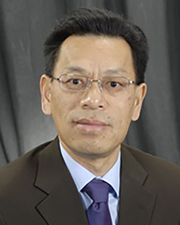
Ding-Geng (Din) Chen is a professor of biomedical informatics with expertise in developing statistical methodologies and their applications for health and social intervention research. Before joining the College of Health Solutions, he was the Wallace H. Kuralt Distinguished Professor and director of the Consortium for Statistical Development and Consultation at the School of Social Work at the University of North Carolina at Chapel Hill. His research interests include developing novel statistical data analytics and conducting collaborative research on clinical trials, meta-analysis and multilevel modeling with advanced data science methodologies. He has co-authored and co-edited more than 30 books and has contributed to public health research through his role as the statistics program chair for the American Public Health Association. He holds a PhD in statistics from the University of Guelph in Ontario, Canada.
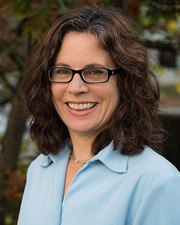
Marissa Domino will join the College of Health Solutions in January 2022 as a professor and the director of the Center for Health Information and Research (CHiR), the college’s multidisciplinary unit that serves and collaborates with individuals and organizations that need comprehensive health information and data analysis for public, private and research uses. Domino, who earned her PhD in health economics from Johns Hopkins University and completed a postdoctoral fellowship at Harvard Medical School’s Department of Health Care Policy, will join ASU from the University of North Carolina-Chapel Hill, where she is a professor in the Gillings School of Global Public Health and the director of the program on mental health and substance abuse systems and services research at the Cecil G. Sheps Center for Health Services Research.
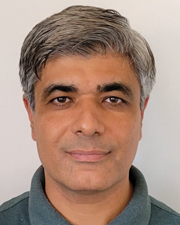
Hassan Ghasemzadeh is an associate professor of biomedical informatics whose research interests include mobile health, machine learning, behavioral health and algorithm design. Prior to joining ASU, he was an associate professor in the School of Electrical Engineering and Computer Science at Washington State University, where he designed technologies to enable health monitoring and clinical interventions in uncontrolled environments. His research targets populations ranging from those with chronic conditions to those suffering from mental health issues. His PhD in computer engineering is from the University of Texas at Dallas, and he did his postdoctoral work in computer science at the University of California in Los Angeles.
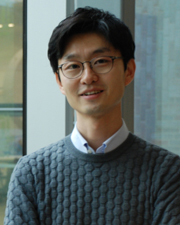
Min-Hyun Kim will join the college in January 2022 as an assistant professor of nutrition upon completion of a postdoctoral research fellowship at the University of Michigan Medical School. His research focuses on understanding cellular and nutrient metabolism in obesity and metabolic disease, and he is currently working in the medical school’s Department of Molecular and Integrative Physiology under the direction of Liangyou Rui, a leader in obesity and diabetes research. He has collaborated on numerous research projects that have been published in peer-reviewed journals, and he is a past winner of the American Society for Nutrition’s graduate research award competition. He earned his PhD in nutritional sciences from the University of Florida.
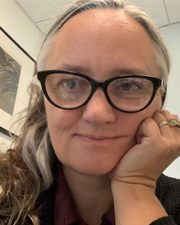
Judith Klein-Seetharaman is a professor of nutrition with a dual appointment in ASU’s School of Molecular Sciences. Her expertise in biology and chemistry serves her interdisciplinary research in machine learning-driven proteomics and metabolomics and the integration of computational and experimental approaches in systems and structural biology of proteins. She has published over 150 papers and has received numerous awards, including a National Science Foundation CAREER award and a Bill and Melinda Gates Foundation Grand Challenges award. She holds degrees in biology and chemistry from the University of Cologne, in Cologne, Germany, and a doctorate in biological chemistry from the Massachusetts Institute of Technology where the late Nobel laureate H. Gobind Khorana supervised her thesis research on rhodopsin, a sensory protein that converts light into an electrical signal. She was formerly an associate professor of chemistry at the Colorado School of Mines.
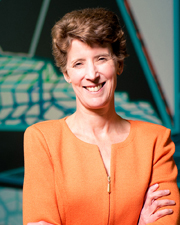
Sally Morton, executive vice president of the ASU Knowledge Enterprise, is a professor in the College of Health Solutions and also holds an appointment with the ASU School of Mathematical and Statistical Sciences. She is internationally recognized for her pioneering work on the use of statistics and data science to help patients and their health care providers make better decisions. Prior to joining ASU, Morton was dean of the College of Science and professor of statistics at Virginia Tech. She holds a PhD in statistics from Stanford University.
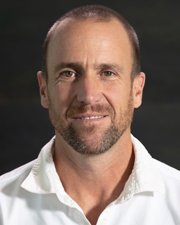
Jason Siegler is an associate professor of health and human performance with a focus on sports physiology, athlete monitoring in team sports and injury prevention. He is based in ASU’s new Wexford Science and Technology building, part of the Phoenix Biomedical Campus at the Downtown Phoenix campus, where he researches the effects of nutrition, hydration, fatigue and training on sports performance. Before joining ASU, he was an associate professor of sport and exercise science at Western Sydney University in Australia where he taught exercise, nutrition, testing and measurement, and mentored both undergraduate and graduate students. He holds a PhD in health and physical education with a concentration in exercise physiology from the University of New Mexico.
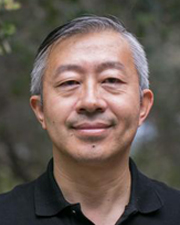
Yi-Yuan Tang, a professor of human neuroscience, has an interdisciplinary background in neuroscience, health psychology and health sciences, and he studies mental processes related to cognitive, physical and mental health. Before coming to ASU, he was a professor of psychological sciences and internal medicine at Texas Tech University and has published nine books and more than 300 peer-reviewed articles on how environment and experience interact with genes to affect brain processing and healthy behaviors. He received his PhD in neuroimaging and cognitive neuroscience from Dalian University of Technology in China.
Clinical faculty
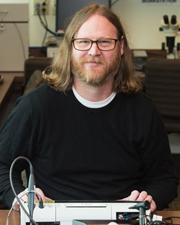
Matthew Bell is a clinical associate professor of audiology, having served as a clinical assistant professor of audiology at Utah State University and Pacific University in Oregon, where he helped develop its Doctor of Audiology program. He also has extensive experience as a clinical audiologist for private medical practices. In addition, he has drawn on his own background as a musician and audiologist to develop hearing conservation education for people at high risk of hearing loss, such as musicians and music industry professionals, and has created courses for audiology students to teach them how to evaluate, counsel and treat this population. He holds a Bachelor of Music from Utah State University and a Doctor of Audiology from the University of Washington.
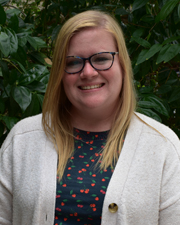
Bridget Shanahan Herrick joins the college as a clinical assistant professor of audiology from Mesa Public Schools, where she was an educational audiologist experienced in managing hearing screening programs and referrals, facilitating learning accommodations for children with hearing loss, and training parents, teachers and support personnel. She also has served as a diagnostic audiologist at ear, nose and throat practices in the Phoenix metro area. She holds a bachelor’s degree in communication disorders and sciences from Easten Illinois University and a Doctor of Audiology from the University of Wisconsin.
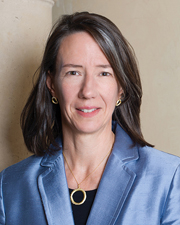
Dr. Susan Pepin, a surgeon and clinician, is a clinical professor with expertise in neuro and pediatric ophthalmology. She most recently managed clinical partnerships for ASU and previously served as an associate professor of surgery and pediatrics at Geisel School of Medicine at Dartmouth University. Pepin earned a Doctor of Medicine from the University of California, San Francisco and a Master of Public Health from the Dartmouth Institute for Health Policy and Clinical Practice.
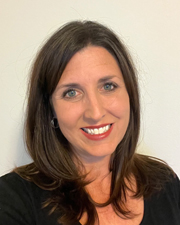
Jennifer Ratigan will join the college in January 2022 as a clinical associate professor of audiology from Evergreen Public Schools in Vancouver, Washington, where she is a case manager for middle and high school students in the district’s deaf and hard of hearing program. A licensed audiologist with 20 years of experience, she has expertise in diagnostic audiology, cochlear implants and rehabilitation as well as curriculum and teaching. She has worked in a private audiology practice and as adjunct faculty at A.T. Still University of Osteopathic Medicine and Pacific University. She received her Doctor of Audiology from Gallaudet University and completed a residency at the Mayo Clinic College of Medicine.
Lecturers
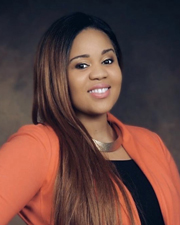
Nnenna Agu is a lecturer in the health sciences program with a focus on applied medical and health care ethics and health communications. She is a licensed pharmacist with experience in both business and medical settings. She holds bachelor’s and master’s degrees in biochemistry, molecular biology and biomolecular science from the University of Maryland and a Doctor of Pharmacy from the Massachusetts College of Pharmacy.
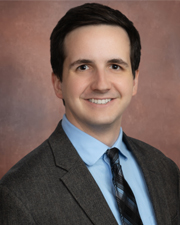
Daniel Bos received his Doctor of Audiology from ASU in 2018 and now returns to the College of Health Solutions as a lecturer for the speech and hearing science undergraduate program. Since earning his AuD degree, he has gained experience in both clinical and academic practice as director of audiology for an ear, nose and throat practice and as an adjunct faculty member at Northern Arizona University. He earned his Bachelor of Science in speech, language and hearing sciences from the University of Arizona.
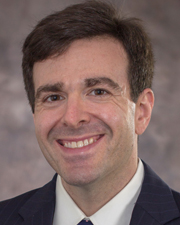
Michael Donovan is a lecturer in biomedical diagnostics whose background in microbiology, immunology and law served him in his former position as the system director for intellectual property and strategic innovation at CommonSpirit Health. He holds a Bachelor of Science in microbiology from the University of Michigan, a PhD in biological sciences from the University of Notre Dame and a Juris Doctor from ASU’s Sandra Day O’Connor College of Law. A patent attorney for the last 11 years, he specializes in patent prosecution and intellectual property licensing for life sciences-related technologies, work he did as the intellectual property counsel for the Translational Genomics Research Institute (TGen) after leaving private practice.
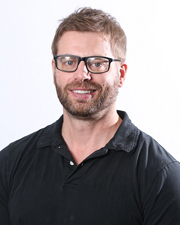
Jeremy Fransen is a lecturer in movement sciences whose experience is focused on varied aspects of exercise and human performance, including nutrition, exercise testing and exercise as medicine. Before joining the college, he was an assistant professor of exercise science at Aurora University and North Central College in Illinois, where he was the program director of exercise science and director of the human performance laboratory. His research on the effects of hydration, supplements and training on the body has been published in peer-reviewed journals, and he has ongoing research in body response to kettlebell sport competition and anaerobic exercise. He has a Master of Science in exercise physiology from the University of Nevada and a PhD in exercise physiology from the University of New Mexico.
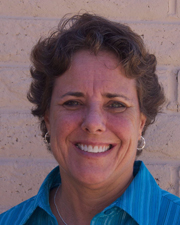
Tiffany Gray is a lecturer in movement sciences after having taught courses as an instructor in health, wellness and exercise science at both the College of Health Solutions and Mesa Community College. She is also an experienced health and wellness coach who has served individual clients and health organizations in the Phoenix metro area, including Carewise Health and Dignity Health. Her undergraduate work focused on kinesiology and pre-sports medicine, and she holds a master’s degree in exercise and wellness from ASU.
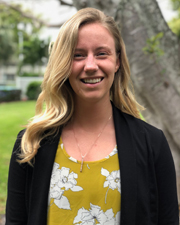
Lindsey Miossi is a lecturer in movement sciences with a focus on sport psychology, exercise science and health promotion. Her research focuses on optimizing both the physical and mental aspects of health and human performance. She is a practicing wellness coach and mental performance consultant and holds bachelor’s and master’s degrees in kinesiology from the University of Illinois and a PhD in kinesiology and sport studies from the University of Tennessee.
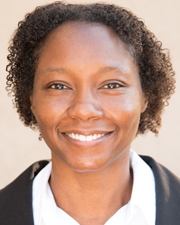
Teri Taylor is a lecturer in health sciences, joining the college from the University of Arizona, where she was a faculty associate. She teaches courses in health care ethics and the cultural aspects of health and has research interests in coordinated school health programs and health disparities. She has a Master of Public Health from San Diego State University and a Doctor of Public Health in maternal and child health from the University of Arizona.
More Health and medicine
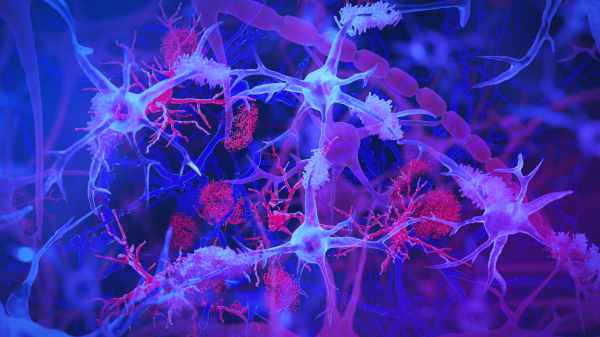
The surprising role of gut infection in Alzheimer’s disease
Arizona State University and Banner Alzheimer’s Institute researchers, along with their collaborators, have discovered a…

ASU, University of Wisconsin partner to empower Black people to quit smoking
Arizona State University faculty at the College of Health Solutions are teaming up with the University of Wisconsin to…

New book highlights physician wellness, burnout solutions
Health care professionals dedicate their lives to helping others, but the personal toll of their work often remains hidden.A new…